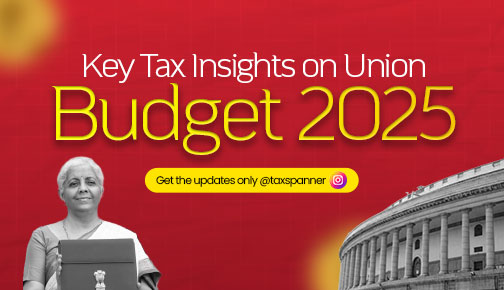File GST return online
GST return Meaning
A GST return is a document that includes the details of income, sales, expenses, and purchases of a GST-registered taxpayer, which is used by the tax authorities for the purpose of calculating the net tax liability of the taxpayer. It includes purchases, sales, output GST on sales, and input tax credit or GST paid on purchases.
Who needs to file a GST return?
- In accordance with the GST returns, taxpayers operating their businesses throughout India, whether interstate or intrastate, are required to file the GST return as directed by the indirect tax department and GST council.
- Under the GST regime, businesses with annual turnover over Rs.5 crore must file 25 returns annually.
- The taxpayers who have a turnover of up to Rs.5 crore can go for the QRMP scheme, which requires 9 GSTR filings each year, including 4 GSTR-1 and GSTR-3B returns and an annual return. However, it is important to note that QRMP filers must pay tax monthly, even though they file quarterly returns.
- Special cases like composition dealers require separate statements/returns, with 5 filings each year containing 4 statement-cum-challans in CMP-08 and 1 annual return GSTR-4.
Steps to file GST return online
- Go to GST portal www.gst.gov.in
- Your state code and PAN number will be used to generate a 15-digit GST identification number.
- Upload invoices on the GST portal. Each invoice will be provided with an invoice reference number.
- Once Invoices are uploaded, the cumulative monthly return, outward return, and inner inward return must be filed online.
- On or before the eleventh of the next month, file the outward supply returns in the GSTR-1 form via the information provided in the GST Common Portal (GSTN).
- You can choose to rectify any mistakes and refile the returns if necessary.
Types of GST returns
GST consists of 13 returns, including GSTR-1, GSTR-3B, GSTR-4, GSTR-5, GSTR-5A, GSTR-6, GSTR-7, GSTR-8, GSTR-9, GSTR-10, GSTR-11, CMP-08, and ITC-04. Taxpayers file these returns based on their taxpayer type and registration. Eligible taxpayers with a turnover exceeding Rs. 5 crore must also file a self-certified reconciliation statement in Form GSTR-9C. In addition to GST returns, taxpayers can also avail of statements of input tax credit, i.e., GSTR-2A (dynamic) and GSTR-2B (static) and an Invoice Furnishing Facility (IFF) for small taxpayers registered under the QRMP scheme. These taxpayers still need to pay taxes monthly using Form PMT-06.
Benefits of GST for Startups and Small businesses in India
Improved Taxation System in India
- The New Goods and Services tax regime eliminates tax anomalies and inconsistencies that result in more transparency and less corruption in the system.
- Increased transparency eliminates human interference and scrutiny of tax filings.
- GST eliminates corruption issues by making the process paperless and online.
- GST Suvidha Providers (GSPs) help taxpayers register, file, and stay compliant.
GST Input Tax Credit Benefits for Startups
- GST, which was introduced in the past, made setting up manufacturing facilities difficult due to extensive capital and tax restrictions.
- Currently, Startups can avail of GST ITC on taxes paid in advance.
- This relief is especially beneficial for companies with limited capital and external funding.
- In addition to these, startups can use the input tax credit as working capital.
GST Compliance Cost Reduction for Businesses
- The government has integrated multiple taxes into a single GST.
- Startups and entrepreneurs no longer need multiple tax departments.
- Despite the challenges, GST compliance will become easier with time.
"One Nation, One Tax, One Market"
- GST eliminates multiple taxes like excise, VAT, and service tax, making calculations simple and reducing paperwork.
- Startups and SMEs will benefit due to reduced compliance costs.
Reduction in Transportation and Logistics Cost
- GST regime replaces state governments' tax structures on Octroi and CST for interstate transportation of goods.
- GST reduces tax for goods and services movement across multiple states.
- Tax reduction also lowers overall logistics costs for startups, which facilitates product delivery across state boundaries.
Enhanced Business Expansion and Scalability
- Startups previously limited to one state to avoid tax issues and maintain operations.
- GST eliminates the need for multiple GST registrations, giving businesses access to a wider customer base.
- However, Sub-branches or offices in multiple states still require separate GST registrations.
Business-Friendly Tax Policy
- GST is expected to facilitate precise and clear tax administration for startups.
- New entrepreneurs need to avoid tax burdens, disputes, and difficulties during business setup.
- These procedures and policies should be implemented at the ground level.
- Effective implementation of the GST regime is crucial for startups.
- A well-planned GST regime can boost startups, not an inefficient taxation model.
Simplified Taxation System in India
- GST advocates for a simple taxation policy for efficient administration and adherence by authorities.
- It also highlights the importance of tax laws for societal and economic benefits.
- Due to the GST scheme, the Government's Joint Committee anticipates a standardized and centralized registration cell for indirect tax registrations.
- The Govt. highlights the need for self-certification compliances and supervision measures in the "Startup India" plan.
- The GST regime should have similar provisions to reduce the initial registration burden.
GST composition plan for startups
The GST regime has introduced an optional scheme called the GST Composition Scheme, which allows startups and small businesses with annual turnovers up to Rs. 1.5 Crores to pay lower taxes. This scheme reduces the burden of taxes at the nascent stage. The threshold limit for service tax and VAT has been increased to Rs 20 lakhs(Rs 10 lakhs for North East and the Hill States), while businesses with annual turnovers below Rs 1 Crore can avail the composition scheme levy at a lower rate. This change aims to simplify the tax system for startups and small businesses.
Explore TaxSpanner's wide range of calculators for your tax planning and calculations!
View Tools & Calculators



